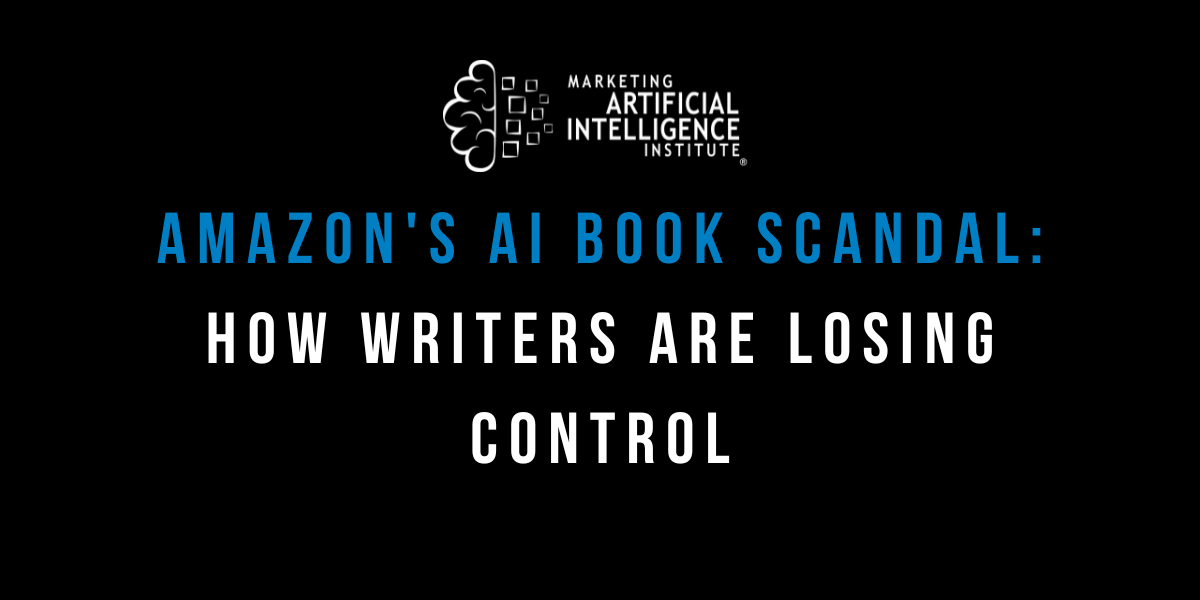A new nightmare for writers shows how AI deepfakes could upend the book industry—and Amazon isn't helping.
The story comes from author Jane Friedman, a veteran writer and academic who woke up to find AI-generated books listed under her name on Amazon.
Why it matters: Friedman discovered six fake books attributed to her on the retail giant's site. She had not written them; they were created by artificial intelligence.
Amazon initially refused Friedman's request to remove the fraudulent titles. The books were only taken down after backlash given Friedman's stature in publishing.
“What we are seeing is, for authors, the prose equivalent of deep fakes,” Justin Hughes, who teaches intellectual property law at Loyola Law School, told The Daily Beast.
Friedman’s dilemma highlights the lack of policies and regulation that exist today to protect authors from AI-generated deepfakes of their work.
Connecting the dots: In Episode 59 of the Marketing AI Show, Marketing AI Institute founder/CEO Paul Roetzer broke down why this is such a problem.
- First is Amazon's negligence in enabling this. “That's not an AI thing, that is a business model thing where it just seems kind of crazy to me that they’re enabling this,” says Roetzer.
- Second is the advancing capability of AI systems to replicate creative work. "You’re going to be able to take books you like and say, 'write me more of this'," says Roetzer. “It's going to be doable in music, it's going to be doable in art, it's going to be doable in text.”
- That means we won’t see a stop to AI-replicated or AI-inspired works. "We've opened Pandora's box when it comes to the ability to create this stuff," Roetzer adds. From deep fakes to generating text, this will only accelerate.
- Laws and regulations may help slow the spread, but won't fully stop it. "People are going to do this stuff," Roetzer says. “The models [to do it] will be out there, they’ll be open source, they’ll be available on legitimate and illegitimate sites.”
What to do about it: This should concern every author and creator. AI-generated content will make incomes less stable. Reputations could suffer from fake work attributed to writers. But, today, there’s not much recourse for authors.
Friedman said she'd have had no recourse without her large platform thanks to her clout in the publishing industry. Lesser-known writers don’t have the same advantages. But there are a handful of initial steps you can take, says Roetzer.
"Set up alerts to monitor mentions of your name," he advises. Legal help from an intellectual property attorney can also assist.
But, ultimately, the onus is on Amazon and other retailers. More guardrails and responsibilities must be placed on platforms enabling this activity to curb the spread of AI-generated fakes.
Mike Kaput
Mike Kaput is the Chief Content Officer at SmarterX and a leading voice on the application of AI in business. He is the co-author of Marketing Artificial Intelligence and co-host of The Artificial Intelligence Show podcast.


